Rhinoplasty
Request now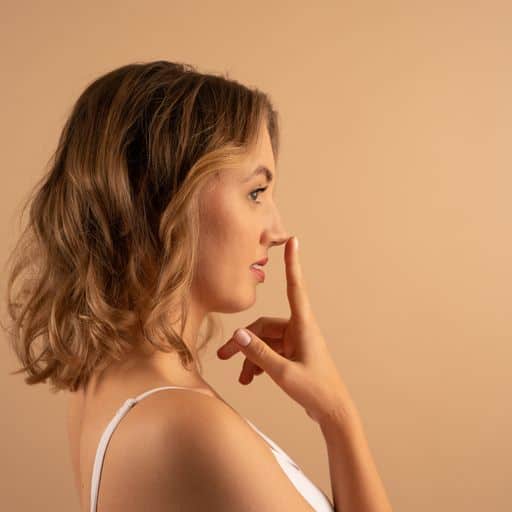
Rhinoplasty
Your nose is the centre of your face and fulfils many important tasks. A nose job may be necessary if you have difficulty breathing, smelling and secretions cannot drain properly. But there may also be aesthetic reasons why you are considering a nose job. Trust the experienced doctors who perform rhinoplasty with precision and skill. There are several ways to achieve the desired result. We will explain the procedure to you and refer you to a clinic of your choice in Turkey or the Czech Republic.
The doctor at your chosen clinic will draw up a treatment plan tailored to you, with the aim of enhancing your natural beauty.
Say goodbye to insecurities and hello to the new, confident you.
Why book through us?
- Experience and expertise: The team of doctors at the respective clinic has many years of experience in the field of rhinoplasty and is always up to date with the latest medical developments.
- Individual consultation: We take the time to understand your wishes and goals and your personally selected clinic develops a tailor-made treatment plan for you.
- Safety first: Your health and safety come first. The clinics operate in a modern, hygienic environment and follow strict medical standards of the respective country.
- Natural aesthetics: The nose correction is carefully performed by the attending doctor to achieve a natural result.
Your path to your desired procedure - The treatment process
- Personal consultation: We will discuss all your wishes and inform you in detail about the entire procedure before the nose correction.
- Individual treatment plan: The on-site medical team develops a customised treatment plan that takes into account your physical characteristics and personal expectations.
- Treatment: Using the most modern techniques, the doctors perform the nose correction to achieve an aesthetically pleasing and natural result.
- Aftercare and support: Even after the treatment, we , as mediators, and the medical team of the respective clinic are available for professional aftercare to ensure a smooth healing process.
Contact us today and arrange a trial appointment! Our team is available to answer all your questions and explain the process in detail.
Price
Aftercare in Germany
Medassure Beauty covers the follow-up costs for you.
What are the advantages of follow-up cost insurance with Medassure?
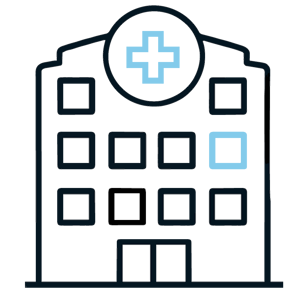
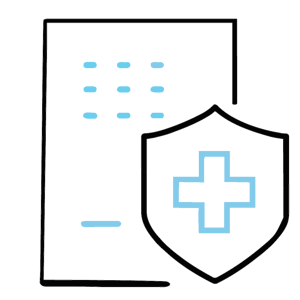
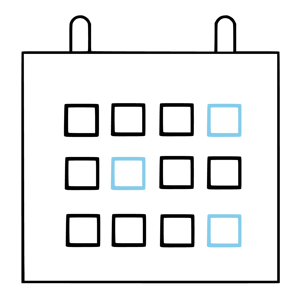
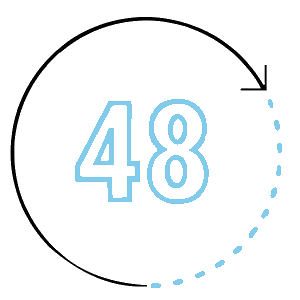
When is the best time for a nose job?
The best time for a nose job depends on personal factors and the healing time. Patients with hay fever or similar allergies should ideally schedule the procedure outside of allergy season to avoid discomfort during recovery. A period in which you can take your time to heal is also important, so the autumn or winter months are often a good choice.
What are the disadvantages of rhinoplasty?
Nose surgery can be associated with pain, swelling and bruising after the procedure, which may last for some time. There is also a risk of complications such as infection or adverse outcomes that may require a repeat operation. Sometimes nasal breathing may be temporarily impaired. Healing time can also be lengthy and changes in appearance can have psychological effects, both positive and negative, and an adjustment period may be required.
How long does a rhinoplasty last?
The results of a rhinoplasty are usually permanent, as most structural changes to the cartilage and bone are permanent. However, factors such as age, skin texture and general health conditions can affect the nose over time, so minor changes may occur. In some cases, a follow-up correction may be necessary if the result does not meet expectations or changes over the years.
How painful is rhinoplasty?
The sensation of pain after rhinoplasty varies from person to person, but is usually described as moderate. Many patients report mild to moderate pain, often accompanied by swelling and a feeling of pressure. Doctors usually prescribe painkillers to alleviate the discomfort and most people experience a noticeable improvement after a few days.
Who should not have a rhinoplasty?
There are several groups of people who may not need a rhinoplasty:
1. health problems: people with certain conditions, such as severe cardiovascular disease, respiratory disease or autoimmune disease, may need to avoid surgery.
2. allergies or infections: People with active infections or severe allergies, especially at the time of surgery, should postpone treatment.
3. young patients: In adolescents, the growth of the nose should be completed to ensure that the results remain stable.
4. mental health: individuals with certain mental health conditions or unrealistic expectations of outcome should be carefully evaluated.
It is important to discuss all health aspects with a specialist to determine whether a rhinoplasty is suitable.
What should not be done before a nose correction?
You should avoid blood-thinning medication such as aspirin or ibuprofen before a rhinoplasty, as they can increase the risk of bleeding. Alcohol and smoking are also problematic and should be stopped a few days before the procedure as they can impair healing. It is also advisable to avoid facial treatments and cosmetic procedures in the weeks before the operation. Intense physical activity should also be avoided until the operation to prevent injury.
What should you not do after rhinoplasty?
After a rhinoplasty, you should avoid intense physical activity for several weeks to prevent swelling and injury. You should also refrain from sneezing or blowing your nose, as this can put pressure on the operated region. Keep the nose away from direct sun exposure to prevent skin damage and impaired healing. It is also advisable to avoid alcohol and nicotine, as both can have a negative effect on recovery.
How long should I avoid coffee after rhinoplasty?
After rhinoplasty, it is often recommended to avoid coffee and drinks containing caffeine for at least a week. Caffeine can dilate blood vessels and potentially lead to increased swelling or bleeding. However, it is important to follow your surgeon's specific instructions as individual recommendations may vary.
How do I wash my hair after a nose operation?
After a nose operation, you should refrain from washing your hair for the first week so as not to impair healing. If you wash your hair later, it is helpful to do so with gentle water and possibly ask someone to help you to ensure that no water gets into your nose. Keep your head upright or slightly tilted back to avoid pressure on the operated area.
Which sleeping position is best after a nose operation?
After a nose operation, it is best to sleep in an elevated position, ideally on your back with additional pillows to keep your head elevated. This position helps to reduce swelling and minimise pressure on the nose. Avoid sleeping on your side as this can affect healing and put pressure on the operated side. Make sure you are lying comfortably and have support to sleep well.
When to blow your nose after nose surgery?
After a nose job, you should generally refrain from blowing your nose for around two weeks to avoid pressure and irritation. During this time, you can instead use gentle nasal rinses or saline solutions to keep your nose moisturised. It is important to follow your doctor's specific instructions as individual recommendations may vary.
When will you look normal again after a rhinoplasty?
Most people look relatively normal again after a rhinoplasty after about one to two weeks, when the swelling and bruising subside. However, it can take several months before the final result is visible, as the nasal structure continues to heal and adapt. Small changes may still occur in the first three to six months, so the final appearance is often only fully recognisable after a year. It is important to be patient and attend follow-up appointments with your doctor.